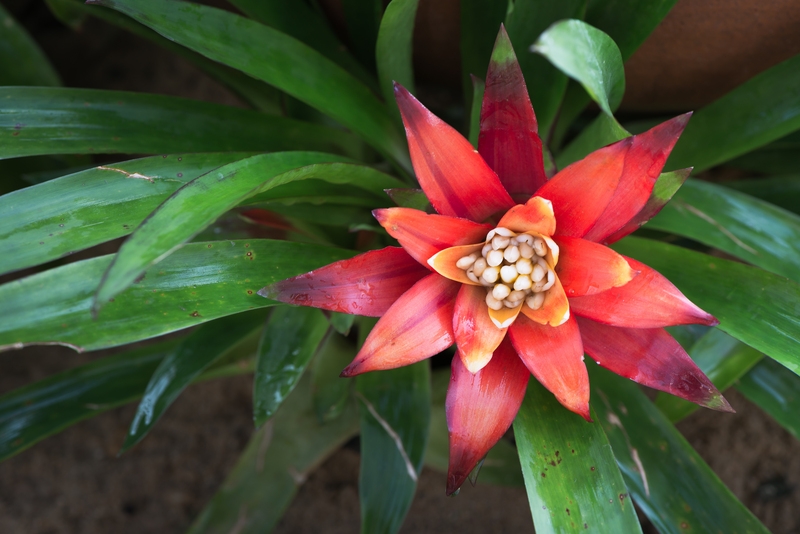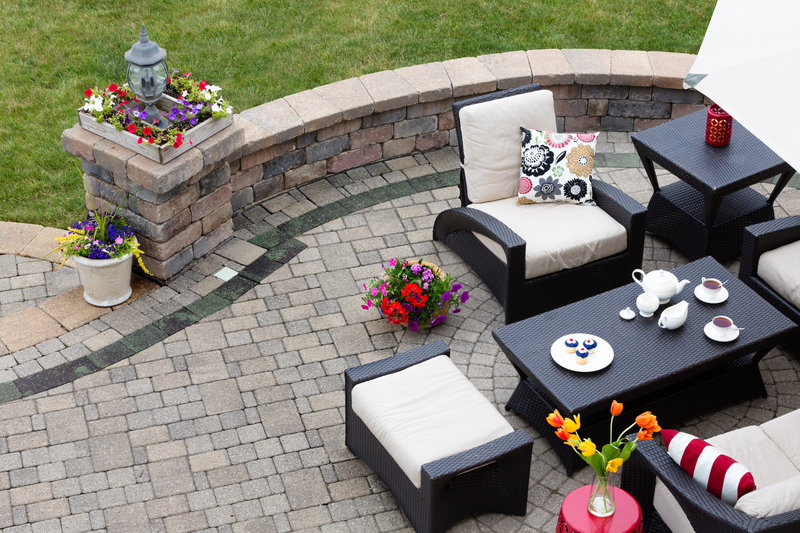Cultivate Success with These 9 Essential Beginner Gardening Tips
Posted on 14/08/2025
Cultivate Success with These 9 Essential Beginner Gardening Tips
Are you eager to grow a flourishing garden but not sure where to begin? Whether you're working with a few pots on your balcony or a spacious backyard, beginner gardening can be a deeply rewarding journey. To help you along the way, we've compiled nine essential gardening tips that will empower you to nurture a thriving, beautiful outdoor space. Let's uncover the secrets to gardening success and turn your growing aspirations into vibrant reality!
1. Assess Your Garden Space
Understanding Your Environment
The first step for every new gardener is to evaluate your growing area. Each planting site has unique characteristics--including sunlight exposure, soil composition, and microclimate. Observe your garden during the day to note which spots receive full sun (6+ hours), partial sun, or shade. Sun-loving vegetables like tomatoes and peppers need at least six hours of direct light, whereas leafy greens and herbs may thrive with less.
- Tip: Sketch a map of your space and track sunlight patterns for a week.
- Tip: Consider wind direction and proximity to water sources.

2. Choose Easy-to-Grow Plants
Start Small and Simple
Begin with hardy, low-maintenance plants ideal for novice gardeners. Success with these varieties will boost your confidence and help you learn key gardening skills.
- Herbs: Basil, mint, and parsley are quick to sprout and forgiving of small mistakes.
- Vegetables: Lettuce, radishes, and green beans are resilient, rapid growers.
- Flowers: Marigolds, sunflowers, and zinnias are colorful and easy to care for.
Research each plant's needs so you can position them for success. As you gain experience, experiment with more challenging or exotic varieties.
3. Create Healthy Soil
The Foundation of a Thriving Garden
The quality of your soil is the backbone of successful gardening. Healthy soil is teeming with organic matter, microorganisms, and nutrients that fuel plant growth.
- Test your soil with a home kit to assess pH and key nutrient levels.
- Add compost or aged manure to enrich the earth and improve moisture retention.
- Avoid compacting soil; gently till new beds and avoid walking on planting areas.
If your native soil is rocky or heavy clay, consider building raised beds or using large containers filled with premium potting mix. Well-nourished soil leads to robust roots and healthier plants.
4. Master Proper Watering Techniques
Keep Your Plants Hydrated (But Not Drenched)
Consistent watering is crucial, but overwatering is a common misstep for beginners. Most plants prefer deep, infrequent watering rather than daily splashes.
- Water early in the morning to reduce evaporation and leaf disease.
- Check the soil moisture by sticking your finger an inch deep--water only if it feels dry.
- Use mulch to lock in moisture and regulate soil temperature.
Avoid wetting the foliage, as this can encourage diseases. When possible, use a soaker hose or drip irrigation system. Developing smart watering habits is a key to your gardening success!
5. Learn About Plant Spacing and Companion Planting
Give Your Plants Room to Breathe
Crowded plants compete for sunlight, water, and nutrients, leading to stunted growth and increased pest issues. Always follow the recommended plant spacing found on seed packets or plant tags.
- Leave sufficient distance between rows and individual plants.
- Employ companion planting to harness nature's synergy--for example, pair basil with tomatoes to deter pests.
- Don't mix fast-growing crops with slow growers in the same bed.
Understanding the importance of space not only reduces plant stress but also encourages maximum productivity and fewer pest problems.
6. Stay Ahead of Pests and Diseases
Promote Natural Garden Health
A proactive approach helps prevent common garden pests and diseases. Start by choosing disease-resistant plant varieties whenever possible.
- Inspect your plants regularly for signs of trouble--yellow leaves, spots, or wilting.
- Encourage beneficial insects like ladybugs and lacewings, natural predators for aphids and other pests.
- Remove infected leaves promptly to contain the spread of disease.
If you spot an infestation, use organic solutions like neem oil or insecticidal soap. Clean up fallen debris in the fall to prevent overwintering pests.
7. Fertilize Wisely
Give Your Plants the Nutrition They Need
Over-fertilizing can do more harm than good, especially for gardening beginners. Feed your garden based on your plants' specific requirements and soil test results.
- Use slow-release organic fertilizers or compost for steady nourishment.
- Follow recommended application rates--more is not always better!
- Monitor your plants' leaves and growth for signs of deficiency.
Remember, a healthy garden ecosystem often needs less fertilizer than you think. Balance is the key to long-term success.
8. Develop a Regular Maintenance Routine
Habits That Lead to Gardening Success
Consistency is the secret ingredient to thriving garden beds. Set aside a little time each week for basic chores:
- Weeding: Remove weeds frequently so they don't outcompete your crops.
- Pruning: Pinch back dead flowers and branches to encourage healthy new growth.
- Monitoring: Watch for problems so you can address them early.
- Harvesting: Pick vegetables and herbs regularly for best flavor and to encourage more production.
By building these habits, you'll stay on top of issues and enjoy steady rewards from your garden.
9. Keep Learning & Enjoy the Journey
Embrace the Process of Gardening
Success in gardening comes with patience and a willingness to adapt. Not every crop will be a triumph, and that's perfectly normal. The best gardeners view each season as an opportunity to learn and grow.
- Join gardening clubs or community gardens to connect with fellow enthusiasts.
- Read books, watch videos, and follow experienced gardeners on social media.
- Keep a journal to record what works well and what needs adjusting.
Most importantly, celebrate your successes! Snap photos, share your harvest, and savor the joy of cultivating something beautiful and edible with your own hands.

Bonus Tips for Gardening Beginners
- Invest in basic, quality tools--pruners, trowel, gloves--that feel good in your hands.
- Label your rows and pots to remember what you planted where.
- Start a compost pile to recycle garden waste and enrich your soil for free.
- Don't be afraid to ask questions--most gardeners love sharing advice!
Begin Your Gardening Adventure Today!
With these beginner gardening tips as your guide, you're well-equipped to cultivate a successful garden from day one. Remember, great gardens are grown with attention, patience, and a little experimentation. Whether you seek vibrant flowers, flavorful herbs, or homegrown vegetables, follow these essentials to transform your space--and your connection to nature.
Start small, learn as you grow, and enjoy the magic of your gardening journey. Happy planting!
Latest Posts
Crafting a Pet-Safe Garden Oasis with Floral Flair
Children's Adventure Gardens: Design Tips
From Neglect to Nurture: Garden Revival Tips

